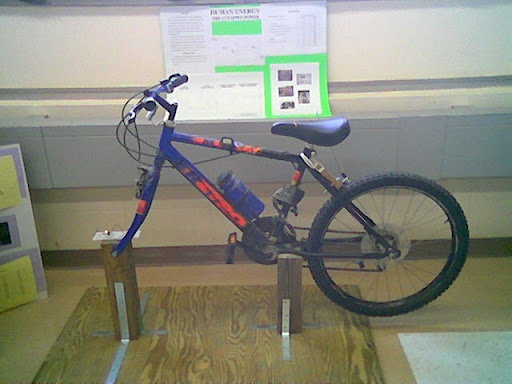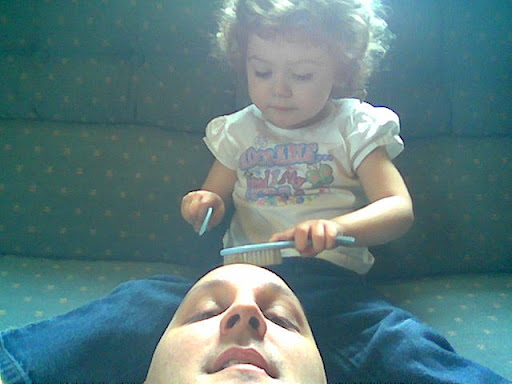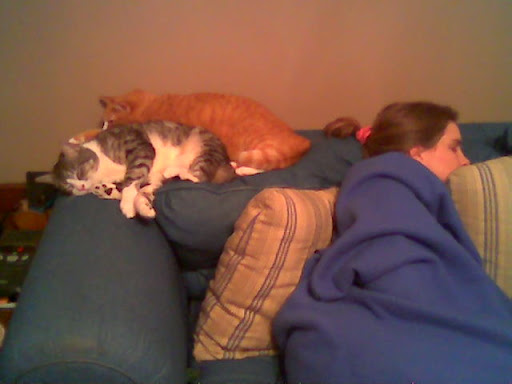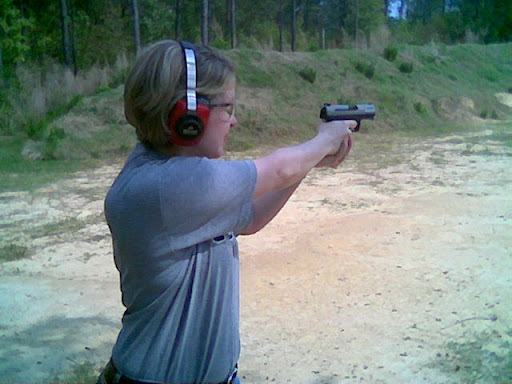I've tried to write this post a couple of times, to be a bit more poetic, maybe even Mark Twain-like in describing the events of this past week.
The only problem is, I'm not a writer. A storyteller, maybe - but not a writer.
My wife and I both took last Friday off for a trip back home to Milledgeville. Normally, we don't take a day off for such a trip - we work the Friday, and mosey on down after the work day and enjoy a weekend of slower paced life, fried foods, and some occasional yelling between my sister and mom. This time was different - we were going to learn how to make my grandfather's Brunswick stew.
I guess at this point, I should provide a bit of background - on the stew. Papa was a Cook - note the use of capital. This doesn't mean that he knew a thing or two about the kitchen - it means that the things he knew he probably invented. Little measuring, rarely kept track of times - it was add a bit of this, a little of that, and let it cook awhile.
I really don't know when he created it. It was probably after my grandmother laid down the ultimatum that he needed to cook something other than chitlins (that's another blog post...). Nevertheless, one day he put shredded meat, chopped onions, pork stock, corn, and several cans of crushed tomatoes all in a big pot. At the end of that day, my grandpa's legacy to his family, friends, and pretty much the entire town was created. Some people might be taken aback by that statement, that a man's legacy through the generations could be tied to food; those people were raised in the city - and none of them ever touched the sweet taste of this stew to their mouths.
Because this recipe made so much - about 5 to 6 gallons - my grandparents would store it in the freezer to have at future family functions - depending on the family - or just whenever they would get the hankering for a taste of the good stuff. It was also usable as currency. You read that right - in my lil' bitty home town, a bucket of this could get you just about any service done on your car, house, or lawn.
I took my truck to a welding shop to get some step rails welded on. I also took my grandfather. When the guy was finished welding and my grandfather was asking how much it was going to be, the man shook his head, "Not a penny. Just bring me a bucket of stew next time you're out this way." In the words of Jerry Clower - if I'm lyin', I'm dyin'!
The downside to making this? Time. Lots of time. Two days worth. And some.
Thus the reason we departed early for home - the meat needed to be cooked, chopped, and shredded the day before the rest of the cooking. My grandparents were already on the ball by the time we arrived, having cooked most of the meat anyway, so my uncle, brother, and I headed out to the pond to get a bend in our poles - for the record, we caught 13 catfish.
After getting some breakfast Saturday morning, we commenced to making the stew - chopping onions,
stir, peeling potatoes,
stir, slicing potatoes,
stir, mix it all together,
stir... you get the picture. My grandmother spent most of the time going back and forth between Papa's bed and the kitchen, passing on orders, tips, and generally reminding us to stir.
He was sick, recovering from two more heart bypasses (four were done 7 years ago) performed back in December; a month after that, he was hospitalized with pneumonia; the next month, he was on the border of congestive heart failure; three weeks ago, he had a pacemaker put in. Compounding it all was a case of emphysema brought on by years and years of smoking. In short, he was laying there dying - but we didn't know it yet.
Around the middle of the afternoon, most of the ingredients needed to simmer for a while. Truth be told, I think Papa just needed a rest. We may have been doing the grunt labor of it all, but even in his bed-ridden shape, his body slowly failing him, he was still
cooking. We left the house to go make some noise (read: we went to the gun range, where my wife proceeded to fire a .44 Magnum. Once.) and to give Papa a chance to rest.
Upon returning, it was time to start taste testing it, quite possibly the best job in the entire world. Taste a little, add some salt, stir. Taste, add, stir. Taste, stir. And finally, done. We set the pot off to the side to let it cool a bit before transferring it to containers - currency, remember? That night, we went to bed knowing the feast in store for us the next day, a glorious Sunday.
And that's how I spent the last day here, on this earth, with my grandfather. At 4am Sunday morning, he went Home. I couldn't imagine it any better. On this occasion, time wasn't the downside - it was the blessing.











